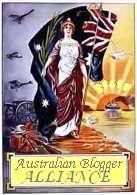DECISIONS, HONOR YOUR TOP PRIORITIES, IF ITS NOT AN ABSOLUTE YES THEN ITS A NO.
Greeks bearing tiffsThe Olympic hosts think Australia has undermined the Games. Europe correspondent Peter Wilson searches for an explanation of Athenian sensitivitiesAugust 14, 2004
THE Parthenon sits behind her, one of the most stunning sights in the world, but Maria Skinitis has a disappointed air as she waits for tourists atop the Acropolis."This was supposed to be a great summer for visitors but it has been my slowest year ever -- more like one long winter," says Skinitis, who has been an Athens tour guide for 37 years.
Nearby, a group of off-duty Channel 7 employees are posing for tourist photos in front of the ancient temple, but there are precious few paying customers for Skinitis and the other guides.
She has no doubt about the cause of the problem. "People have cancelled [trips to Athens] because of all the bad publicity saying we are not going to be ready and that our security is not efficient," she says.
And she is equally confident in naming the culprits. "Everybody knows that the Australian press has been very critical of us, and especially your politicians, like ... is it Mr Howard?"
Skinitis is far from alone in believing the Australian press and Government have gone out of their way to undermine the Athens Games. There is no country in Europe, not even Britain or Ireland, where ordinary people show more genuine fondness for Australia, or are more likely to have relatives there, but a striking characteristic of interviews in the streets, restaurants and shops of Athens over the past week has revealed a new defensiveness about the Games when people are told they are speaking to an Australian journalist.
"Why has Australia been trying so hard to hurt our Games?" is a query I have heard more than a dozen times this week.
Some Athenians go ahead and answer the question themselves. "You are scared that we will put on a better Games than you did," says a teenage motorbike rider with a smile and a shrug.
"Australia wanted our Games to be cancelled so they would be held in Sydney again," declares a young barman, his tone suggesting no malice, just the observation of an obvious fact.
"We have been told by ATHOC [the Athens Olympic Organising Committee]," confides a Greek journalist off the record, "that the Australian Government's criticism of the security is about them wanting to win security contracts for Australian companies."
Even Penny Andreopoulou, the president of the Greek-Australian Society of Athens, believes Australia has been making it hard for Athens.
"The impression we get here is that the Australian press has been focusing on the negative and giving people the idea that things were not under control, when most things were," says the Sydney-born dentist.
Andreopoulou, who describes herself as both a Greek mum and an Aussie mum, and has ensured that her two children have dual passports, says the Greek media has reported for months that the Australian press keeps saying Greece is a Third World country that won't be able to do the Games properly.
"That is what everyone in Athens has been hearing on radio and reading in the papers -- that the Australians keep picking on Athens," she says.
The Australian press has by no means been alone in reporting on the construction delays and security concerns that have given International Olympic Committee officials nightmares over the past few years -- but similar reports in the British and US press have sparked nowhere near the same prickliness.
It was clear a year ago that ATHOC officials were remarkably sensitive about criticism from Australia and that they saw the Sydney Games as a formidable obstacle to Athens's chances of winning the accolade of the best ever Olympics.
With more than a hint of resentment at Sydney's success, ATHOCs beleaguered officials said in background briefings last year they were confident of avoiding the ticketing chaos in Sydney and all the white-elephant stadiums that Sydney was left with. (Prime Minister Costas Karamanlis called a cabinet meeting just this week to demand ideas on what to do after the Games with all the expensive new stadiums that have suddenly been dropped into Athens.)
The sense of competing with Australia -- the only country other than Greece to have taken part in every modern Olympics -- has long been obvious. ATHOC officials have refused, for example, to allow media interviews with the dozens of Australians who have used the expertise they gained in Sydney to work on the Athens Games.
Organisers of previous events such as the Manchester Commonwealth Games and the Winter Olympics were happy to recognise and promote the contribution to those events by Sydney-trained Australians, but ATHOC insisted that the focus should stay on the Greek organisers. The crucial change over the past year is that the sensitivity is now shared by ordinary Greeks. A turning point was the fuss made by ATHOC chief Gianna Angelopoulos-Daskalaki earlier this year when the Australian Government updated its travel advisory on Greece.
The previous warning that visitors should be alert about their personal security was strengthened to say they should exercise caution. There had been no reaction about a week earlier when the Canadian Government had issued the same warning, but the Australian advice provoked a stinging rebuke from Angelopoulos-Daskalaki, who accused Canberra of being unhelpful and undermining confidence in Athens.
Australian ambassador Stuart Hume says he raised the issue with Angelopoulos-Daskalaki, correcting a number of misrepresentations in the manner in which the travel advice had been characterised.
"The point is that we have obviously never been out to hurt the Athens Games, exactly the opposite," Hume says. "We have done everything we can to help."
Hume is just as dismissive about the Greek claims that Australia cranked up pressure to try to win extra contracts on security or other services, or to pay back Athens for not awarding enough contracts to Australians.
"The Australian Government is more than satisfied with the performance of Australian companies in winning contracts relating to the Games," he says.
Australian companies have earned about $200 million providing services ranging from the jumping rails for the equestrian events to a major waste management program. Hume has also gone out of his way to tell Greek officials that the Australian press's scrutiny and occasional criticism of the preparations in Athens is nothing compared with its treatment of the Sydney Games.
While the Greek press is far from docile, it has generally been extremely supportive of the Games. Some journalists reporting on doping issues, for instance, have admitted privately that they have been directed never to mention the suspicions held in most of the athletics world about the performances of Greece's medal-winning sprinters.
In any case, the Greek organisers and public are much more sensitive about foreign criticism than domestic comment, a legacy of Greece's often painful history.
Ancient Athens may have been the strongest and most advanced state on earth, but by the 1st century BC the Athenians were part of the Roman Empire and during next two millenniums experienced a series of foreign conquests.
When Greece finally won back its independence in 1833, Britain and other European powers installed King Otto, an Austrian-born Catholic who reigned for 30 years without bothering to speak Greek. The next king, a Dane who spoke English to his children and German to his wife, ruled for another 50 years, and his family, including the Duke of Edinburgh, stayed on the throne until being turfed out by a referendum in 1974.
The much-resented foreign influence continued through the Cold War, with Washington backing right-wing military dictators who, although Greek, were nonetheless widely reviled.
The resulting sensitivity about outside interference and any hint of a police state explains why hackles have been so easily raised not just by foreign criticism but also by the blanketing of Athens with surveillance cameras and by the presence of the US navy and air force, which are helping to protect Greece during the Games.
That history also explains the twin paradoxes behind Athens's infrastructure problems -- that the richest font of Western civilisation is today one of the poorest countries in Western Europe and that, despite being so ancient, Athens was actually built in a rush.
It may have been inhabited since the Stone Age but by the 1830s Athens was barely a village -- little more than a collection of buildings around the bottom of the Acropolis.
Its growth exploded in 1921 when war with Turkey forced the return to Greece of more than 1million Greek-speakers from Asia Minor, part of modern Turkey.
Refugee camps around Athens turned into instant suburbs, tossed up with no planning and poor infrastructure. Another wave of immigration came after World WarII, when job-seekers flooded to the capital from villages and islands.
Athens gushed out from the Acropolis to fill the basin in which it sits, so that today it is a vast jumble of concrete buildings bounded by mountains on three sides and the sea to the southwest. It has the smallest amount of green space per resident of any city in Europe but has somehow maintained the feel and self-image of a village, hence the ridiculously large number of stray dogs living on its streets.
It is the legacy of that unregulated growth -- traffic, smog and a thousand other frustrations -- that Athens officials are now trying to reverse with their billions of dollars of Olympic infrastructure spending. The last-minute completion of the final Olympic venues has already produced a general air of triumph in Athens, with one local newspaper declaring that the Cassandras of the Australian press have been proven wrong, and most locals saying the late finish was simply the local way of doing things.
At the risk of being labelled a Cassandra, it must be noted that the rush to meet this week's deadline was far from a triumph. For one thing, the late start and rushed finish have raised the overall Olympic bill by hundreds of millions of dollars.
They have also left little time to check systems and tighten security in a city that is so delicately located that some of the illegal workers on Games projects literally walked here from their home villages in Iraq. One worker on the main Olympic stadium told Inquirer that there have been daily security breaches at the site, with workers not properly searched and last week's final security lock-down far from secure.
A drive past the stadium shows that one of its most sensitive entrances, less than 100m from a tunnel under the stadium, is protected by flimsy wire fences, rather than the blast-proof concrete barriers being used in Baghdad to stop suicide bombers. Such observations may be deemed unfriendly in Athens, but Hume says he is confident that with the Games finally under way, any such criticisms will soon be forgotten.
One final Australian threat to Greek sensitivities lurks in Athens -- the broadcasts by Roy and HG. Early this week they were touring the Parthenon, nodding sagely at the gap in the ancient temple where Britain's Lord Elgin hacked out the priceless statues that are now in the British Museum as the Elgin Marbles.
"Ah yes," said Roy as he looked over an ancient statue that had not been pillaged. "This is another of Elgin's sculptures, you can see he had really perfected his style by this stage."
what a load of bollocks........obviously the greeks listen to rumors instead of finding out if there is any truth behind them. Sure Australia has voiced concern over the readiness of venues etc, so has everyone else; the same with security woes. Every country that plays host always has a minor hiccup or two, for gods sake, lighten up!!!!






0 Comments:
Post a Comment
Subscribe to Post Comments [Atom]
<< Home